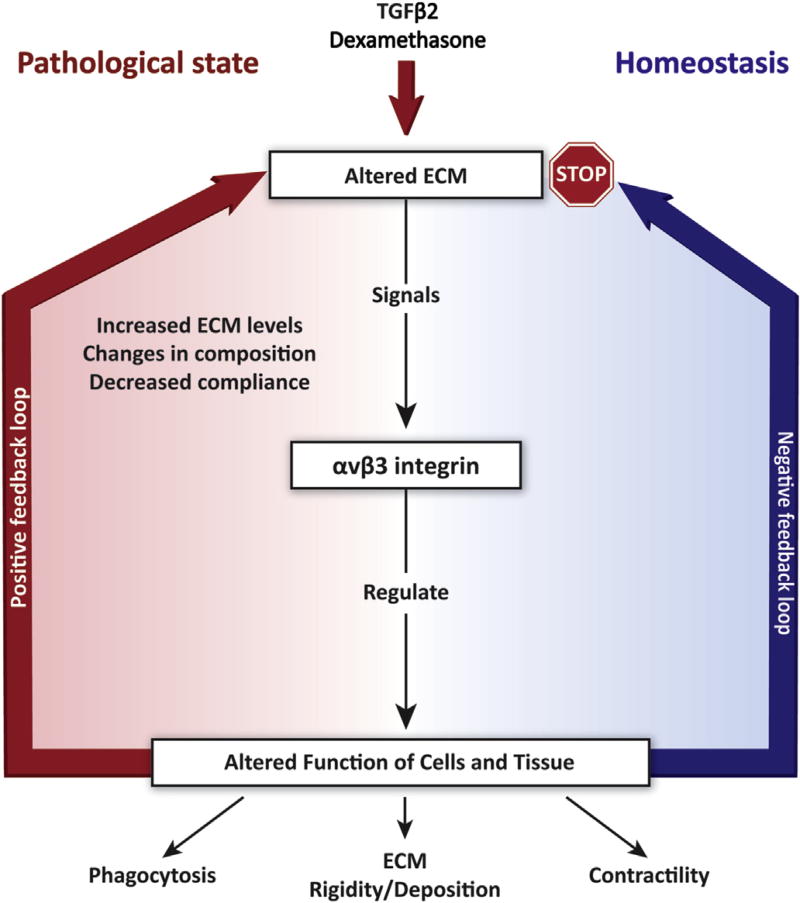Fig. 5.
Role of αvβ3 integrin signaling in the pathophysiology of glaucoma. Changes introduced into the ECM by TGFβ2-or dexamethasone-mediated signaling pathways are perceived by the αvβ3 integrin which then alters biological processes such as contractility, matrix deposition and phagocytosis. Homeostatic mechanisms (negative feedback loop) would downregulate the induced changes and turn off αvβ3 integrin signaling. However, prolonged expression of αvβ3 integrin signaling could establish a positive feedback loop that propagates the effects induced by TGFβ2 and dexameth-asone. The precise mechanism responsible for these negative and positive feedback loops are still unknown.

